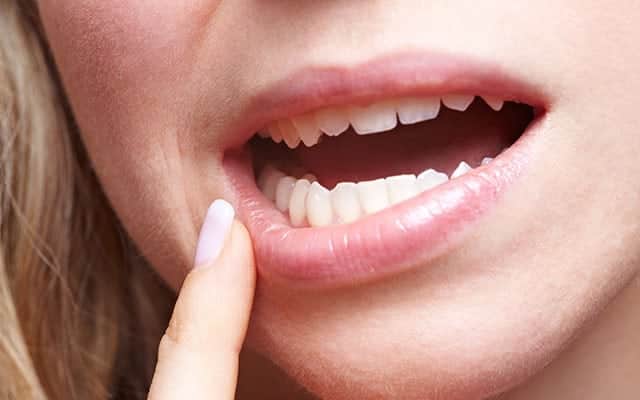Cracked Teeth and What To Do About Them
There have been plenty of times throughout your life that you may have bumped your mouth or teeth on something and felt a sudden fear. Your tongue or finger rushes to the injured area out of instinct to investigate whether or not any permanent damage has been done. Most of the time we are able to breathe an internal sigh of relief when we don’t find an issue and are able to carry on, putting the incident in the back of our minds. Unfortunately, even if you don’t feel any crack, chip or hole in your tooth at any given time, it doesn’t mean that you don’t have underlying damage that could worsen with time.
Not All Cracks In Your Teeth Are the Same
Some are more visible than others, and some can hurt while others might not. Regardless of how it happened, cracked teeth are not to be taken lightly.
Stress Fracture
Our teeth are very strong, but over the years, as we chew, grind, clench and chomp, we end up with one of the most common types of cracked teeth. Stress fractures appear in teeth and can worsen over time if they are not treated. Small ones tend start out in your enamel, which isn’t cause for concern, as they do not cause pain and tend to only be cosmetic. If the cracked teeth with these types of fractures continue to be clenched or used to open bottles (something you should never use your teeth for!), the stress fractures can deepen and start to affect more and more of your teeth. Bruxism, or tooth grinding, can cause these fractures along with many other issues, such as problems with your TMJ and headaches.
Injury To the Face
There are many different ways an injury to your mouth and face could happen. From fights to sports injuries to accidental hits to the face by a friend, your body is designed to take this type of damage when it isn’t too rough. However, with just the right angle or amount of force, a blow to the face can cause chipped or cracked teeth.
Tooth Trauma
Sometimes teeth can become cracked or chipped from day to day things, as well. People chew on pens, ice cubes, use their teeth to open packaging or bottles – all of which we highly caution against as it can break your teeth pretty quickly.

Fixing Cracked Teeth
Depending on the type of crack and how deep into your tooth it goes, there are different treatment options available for cracked teeth.
Dental Fillings
Many times a tooth can get a chip in it, from being hit in the face or by using your teeth to chew something too hard. When there is a small piece of your tooth that has been broken off, it can be quite an annoyance. It can cut your tongue or the tissue on the inside of your cheek or lips if it is sharp enough, creating mouth sores. Also, the longer bacteria is exposed to the inside of that tooth, the more likely decay will form as a cavity in that tooth, so it is best to get small cracks and chips at least looked at by your dentist.
If your tooth crack or chip isn’t large enough to cause internal damage, your dentist may recommend fixing it with a small dental filling. Depending on the size of your crack or chip, you may not even need to be numb for the procedure. During your filling, your dentist will clean off the area, make sure it is free of decay, then place tooth colored filling material to build your tooth back to its original shape. We will be sure to take a shade of your tooth beforehand to ensure the shade of the filling material matches your tooth color. Once the filling material is placed your dentist will cure it with a special light, adjust it to fit your bite perfectly, and smooth it.
Dental Crowns
If cracked teeth have a large piece missing, or if a crack goes further down the tooth an into the enamel, your dentist may choose to place a dental crown over the cracked teeth to better protect them.
A dental crown is custom made to look and feel like your original tooth did before the trauma. An impression will show the dental lab just what your tooth looked like, and they will be able to fill in the crack or chip when making your crown. At your crown seat appointment, the crown will be fitted over your tooth and cemented with permanent cement after making sure the crown is perfect and doesn’t need any adjusting.
This is a very important treatment for teeth that have been cracked badly but haven’t broken apart yet, as a dental crown will hold the tooth together underneath it, providing a kind of shield.
Dental Implants
Sometimes chipped or cracked teeth are so damaged that they are beyond repair. In these cases, your dentist will recommend an extraction of the ruined tooth followed by a dental implant to replace it.
Once a tooth is extracted and the extraction site has healed properly, a dental implant can be placed. A small titanium screw is used as the implant’s base to act as your missing tooth’s root. After the area has fully healed from the implant placement – typically between three and six months – your dentist will take an impression of the area while an abutment is screwed into your implant. This impression is then sent to the dental lab, where they will use it and the initial impression taken before your extraction to fabricate a ceramic likeness of your missing tooth. Once that is complete, it is just a matter of going in for the implant crown to be placed, and you have a replacement of your damaged tooth.
When To Call Your Dentist
Chipped or cracked teeth might not hurt right away, but that doesn’t mean you should ignore them. Even smaller ones should definitely be looked at by your dentist sooner rather than later. Cracks and chips can cause damage to surrounding tissue if large enough. They also leave your tooth open to infection, as bacteria will start to accumulate in the crack and cause decay in a place where your toothbrush cannot reach. This decay can lead to infection and cause pain along with the possibility of becoming hospitalized if the infection is dire enough, so don’t delay! Schedule an appointment if you have recently noticed chipped or cracked teeth in your mouth.


